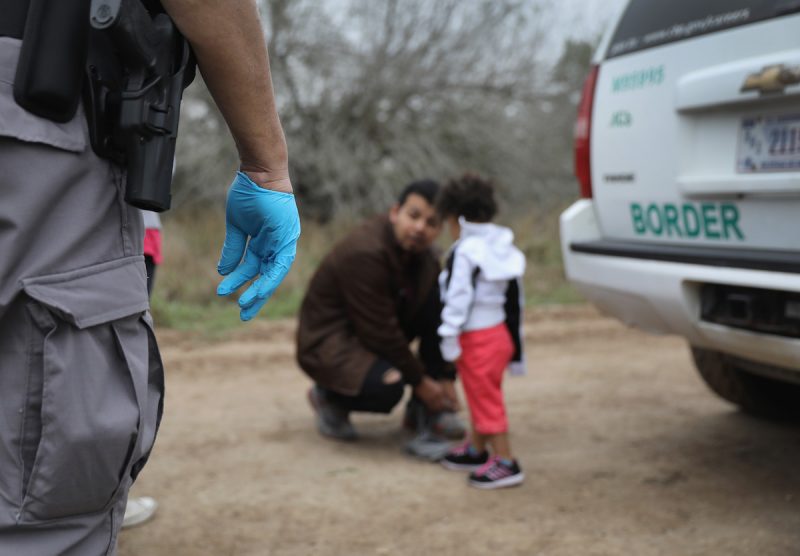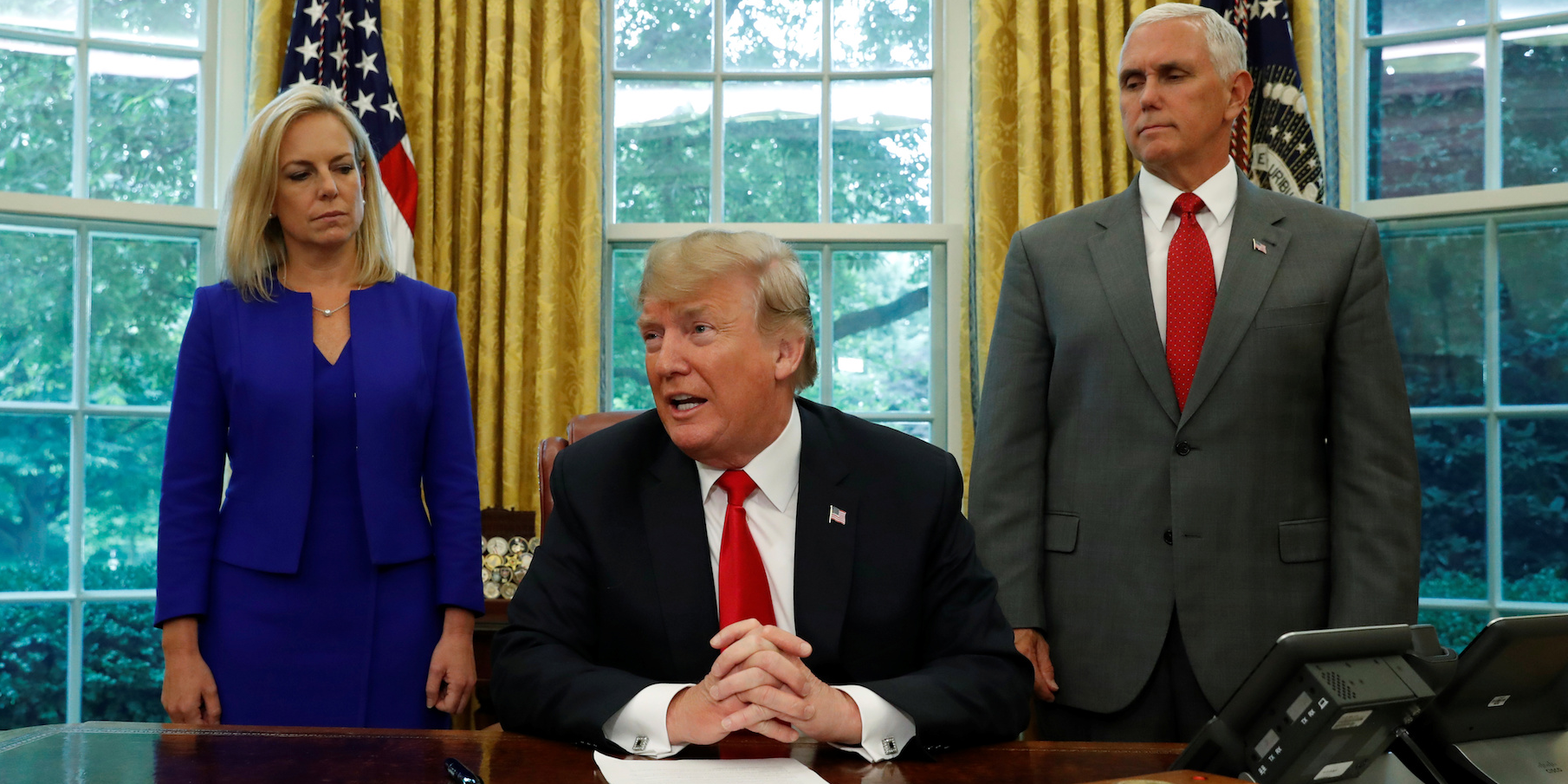- Critics are seizing on President Donald Trump’s new executive order, which intends to end family separation for migrants by instead detaining families together if they cross the border illegally.
- The Trump administration will have to amend a legal agreement known as the Flores settlement, which bars the government from detaining children longer than 20 days.
- Immigration advocates take issue with indefinitely jailing children and advocate other ways to ensure migrant families properly navigate their asylum proceedings.
President Donald Trump reversed course Wednesday after weeks of defending family separations, signing an executive order intended to end the practice of splitting up migrant parents from their kids and instead detain entire families together.
Immigration advocates and experts who had condemned the family separations quickly voiced skepticism of the new order. They criticized the Trump administration for seeking to lock children up indefinitely, alongside their parents, and expressed concern that the families who had already been separated may never reunite.
The executive order did not mention reuniting families that had already been separated or whether it would even be possible to do so. In some cases, parents have already been deported while their children remain in the US.
“Kids should not have been separated from their parents in the first place, and they still don’t belong in jail,” Anthony Romero, the executive director of the American Civil Liberties Union, said in a statement. “He has caused irreparable damage to thousands of immigrant families.”
'We can both be compassionate and honor the law'

The executive order maintains Trump's "zero tolerance" policy that criminally prosecutes all adult migrants detained at the US-Mexico border for illegally crossing it and seeks to hold them in detention while their asylum cases are processed.
Immigration advocates have lambasted the Trump administration for seeking to detain asylum seekers indefinitely.
Though the Trump administration has argued that asylum seekers who aren't incarcerated will skip their court hearings and remain in the US, studies have shown that asylum seekers who are given alternatives to detention generally comply with their court proceedings when they're under minimal supervision and provided legal assistance.
Anne Chandler, the executive director of the Tahirih Justice Center, a legal advocacy organization, supports alternative programs for asylum seekers - such as the now-terminated family case-management system that housed asylum seekers rather than detained them.
"Family detention - the jailing of children in mass incarceration facilities along with their parents - will not be tolerated either," Chandler said. "Courts have found that family detention violates the rights of children, is horribly costly to taxpayers, and causes the curtailment of due-process rights and access to necessary legal and social services."
The Trump administration has also argued that those seeking asylum should seek to enter the US lawfully through a port of entry. Border officials, however, have been known to turn people away.
"We can both be compassionate and honor the law," Matthew Soerens of the nonprofit World Relief, which helps connect refugees to resources, said in a statement. "While being detained together may be marginally better than being detained separately, I think the vast majority of Americans fundamentally believe that kids don't belong in jail, period."
Are you are an immigrant who has been separated from your family at the border? Or do you work with families who have been detained or separated? Email [email protected] to share your story.
¿Es usted un inmigrante que ha sido separado de su familia en la frontera? ¿O trabajas con familias que han sido detenidas o separadas?Envíe un correo electrónico a [email protected] para compartir su historia.

